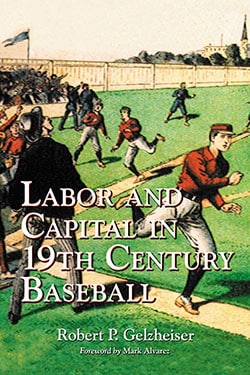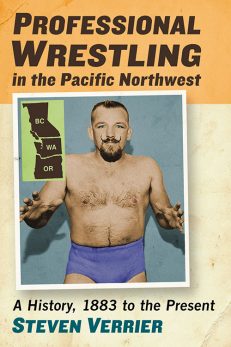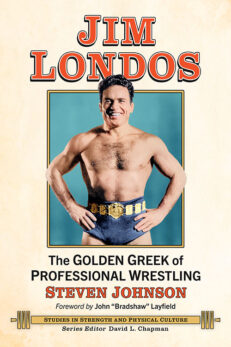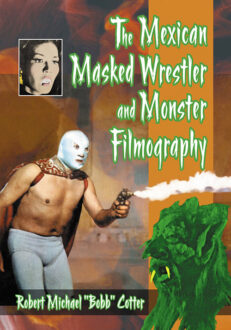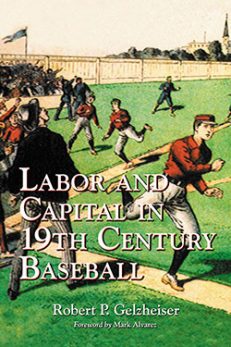Subtotal: $29.95
Labor and Capital in 19th Century Baseball
Original price was: $29.95.$23.99Current price is: $23.99.
In stock
About the Book
In the late 19th century, baseball players broke from the established leagues and organized their own Players’ League. They believed that this rival organization would make wages subject to market conditions and give players more mastery over their careers and industry. Although the league lasted only one year, it was a significant attempt by skilled workers to break from an established monopoly, gain more control over all aspects of their industry, and reap a larger portion of the revenues that they created.
This work explores the early history of professional baseball in the United States, the factors that contributed to the player rebellion of 1890, and the rebellion’s impact on the player-owner relationship in the decade that followed. Appendices include a roster of the 1869 Cincinnati Red Stockings (players, positions, and salaries); the First Reserve Agreement, Section 18 of the Standard Player’s Contract; and commentary and legal documents pertaining to the Reserve Rule.
About the Author(s)
Bibliographic Details
Robert P. Gelzheiser
Foreword by Mark Alvarez
Format: softcover (6 x 9)
Pages: 223
Bibliographic Info: 25 photos, appendices, notes, bibliography, index
Copyright Date: 2006
pISBN: 978-0-7864-2169-5
eISBN: 978-1-4766-3576-7
Imprint: McFarland
Table of Contents
Acknowledgments vii
Foreword by Mark Alvarez 1
Introduction 3
1. The Origins of Professional Baseball in the United States 7
2. The Development of the American Association and the National League of Professional Base Ball Clubs: Baseball Becomes Big Business 20
3. The Player/Owner Relationship in the Mature Baseball Industry 35
4. Business and Labor in the 19th Century: The Changing Relationship in the Baseball Industry 53
5. The Baseball Player as Worker 71
6. The Formation and Development of the Brotherhood of Professional Base Ball Players 84
7. The Adversaries: John Montgomery Ward and Albert Goodwill Spalding 100
8. The Players’ National League of Base-Ball Clubs 116
9. Retreat and Defeat: Consolidation 146
10. Aftermath: 1891 to 1901 159
Appendix 1: The 1869 Cincinnati Red Stockings 175
Appendix 2: The First Reserve Agreement: Secret and Unpublished 176
Appendix 3: Section 18 of the Standard Player’s Contract: The Reserve Rule 177
Appendix 4: Henry Chadwick’s “How the Reserve Rule Helps to Regulate Players’ Salaries” 178
Appendix 5: David Newberger’s (Lawyer for the Brotherhood) Argument Against the Reserve Rule 180
Appendix 6: Judge O’Brien’s Decision Allowing John Montgomery Ward to Play in the Player’s League 182
Appendix 7: Judge Wallace’s Decision on Buck Ewing and the Reserve Rule 184
Appendix 8: Judge Thayer’s Ruling on William Hallman and the Reserve Rule 186
Notes 189
Bibliographic Note 201
Bibliography 203
Index 207
Book Reviews & Awards
- “Robert P. Gelzheiser has written a gem of a book. Backed by impressive research and beautifully and fluidly written, the topic has never been better covered…a joy to read. His fascinating book is brimming with insight and deeply researched detail…let us welcome Robert P. Gelzheiser to the ranks of top baseball historians, for he has produced an extraordinary work”—Swans Commentary

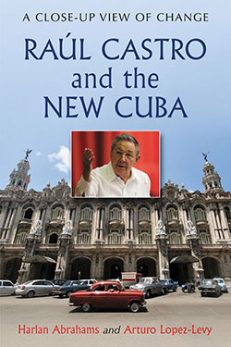 Raúl Castro and the New Cuba
Raúl Castro and the New Cuba 
